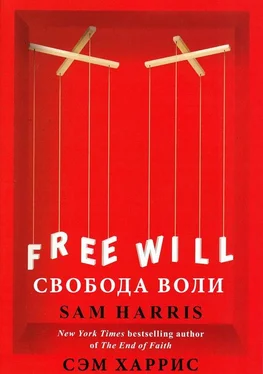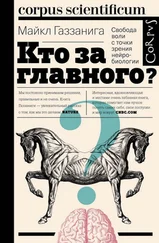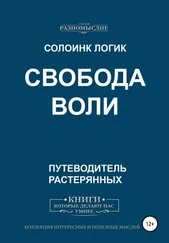B. Libet, C. A. Gleason, E. W. Wright, & D. K. Pearl, 1983. Time of conscious intention to act in relation to onset of cerebral activity (readiness-potential): The unconscious initiation of a freely voluntary act, Brain 106 (Pt 3): 623–642; B. Libet, 1985. Unconscious cerebral initiative and the role of conscious will in voluntary action. Behav. Brain Sci. 8: 529–566. Another lab has since found that a person’s judgment of when he intended to move can be shifted in time by giving him delayed sensory feedback of his actual movements. This suggests that such judgments are retrospective estimates based on the apparent time of movement and not based on an actual awareness of the neural activity that causes the movement (W. P. Banks & E. A. Isham, 2009). We infer rather than perceive the moment we decided to act. (Psychological Science, 20: 17–21).
J. D. Haynes, 2011. Decoding and predicting intentions. Ann. NY Acad. Sci. 1224(1): 9–21.
I. Fried, R. Mukamel, & G. Kreiman, 2011. Internally generated preactivation of single neurons in human medial frontal cortex predicts volition. Neuron, 69: 548– 562; P. Haggard, 2011. Decision time for free will. Neuron, 69: 404–406.
The neuroscientists Joshua Greene and Jonathan Cohen make a similar point:
For a good survey of compatibilist thought, see http://plato.stanford.edu/entries/compatibilism/. See also G. Watson, ed., 2003. Free will (second edition). Oxford: Oxford University Press.
D. C. Dennett, 2003. Freedom evolves. New York: Penguin.
Tom Clark, personal communication.
Daniel Dennett, personal communication.
Galen Strawson (personal communication) has pointed out that even if one agrees with Dennett here, the ordinary notion of moral responsibility is still deeply problematic for the reasons already given.
In his book Consciousness Explained, Daniel Dennett describes an unpublished experiment in which the neurosurgeon W. Grey Walter directly connected the motor cortices of his patients to a slide projector. Asked to advance the slides at their leisure, the subjects were said to have felt that the projector was reading their minds. Unfortunately, there is some uncertainty as to whether the experiment was ever performed.
D. Wegner, 2002. The illusion of conscious will. Cam-bridge, MA: Bradford Books/MIT Press.
L. Silver, 2006. Challenging nature: The clash of science and spirituality at the new frontiers of life. New York: Ecco, p. 50.
For a recent discussion of the role of consciousness in human psychology, see R. F. Baumeister, E. J. Masicampo, & K. D. Vohs, 2011. Do conscious thoughts cause behavior? Annual Review of Psychology, 62: 331–361.
Again, as Galen Strawson points out (personal communication), even if we granted that you are the whole of your mind (conscious and unconscious), you still cannot ultimately be held responsible for its character.
Einstein (following Schopenhauer) once made the same point:
As Jerry Coyne points out (personal communication), this notion of counterfactual freedom is also scientifically untestable. What evidence could possibly be put forward to show that one could have acted differently in the past?
http://opinionator.blogs.nytimes.com/2011/11/13/is-neuroscience-the-death-of-free-will/.
K. D. Vohs & J. W. Schooler, 2008. The value of believing in free will: Encouraging a belief in determinism increases cheating. Psychological Science, 19(1): 49–54.
R. F. Baumeister, E. J. Masicampo, & C. N. DeWall, 2009. Prosocial benefits of feeling free: Disbelief in free will increases aggression and reduces helpfulness. Personality and Social Psychology Bulletin, 35: 260–268.
J. Diamond, 2008. Vengeance is ours. The New Yorker, April 21, 2001, NOTES
Steven Pinker, personal communication
Конец ознакомительного отрывка
Купить книгу









